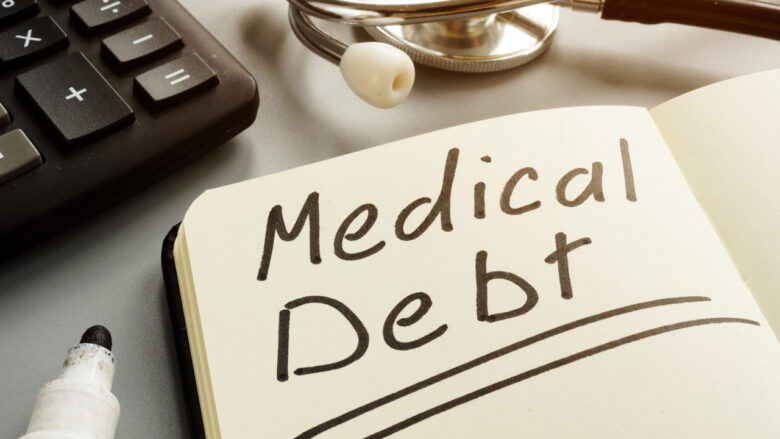One of the most unpredictable and debilitating financial obstacles people face is medical debt. You don’t have to budget for accidents or illness, but they can be costly. These costs include aftercare, prescription medications, hospital bills, and co-pays. Worse yet, if you don’t pay these bills, they can quickly turn into collections, which can damage your credit score and drain your financial resources.
The good news is that you do have some power. You can take concrete steps to deal with medical debt without it hurting your finances or your peace of mind. You don’t have to choose between maintaining financial stability and getting the care you need. In this article, we’ll explain best practices for managing medical bills, negotiating rates, and protecting yourself from the financial stress and anxiety that come with unexpected medical bills.
Identify and Monitor Your Medical Bills Carefully:
Knowing exactly what you are paying for is the first and most important step in managing your medical debt. Medical bills are often confusing, with codes and charges that are difficult for the public to understand. However, errors are surprisingly common, ranging from billing for services never received to duplicate charges. Never pay a bill without reading it first. Please take a moment to review each transaction and kindly request detailed statements.
To determine what is and is not covered, compare it to your insurance policy. Should you observe any irregularities, reach out to your billing department and request an explanation. Being proactive and understanding your statements can help you dispute errors or negotiate a lower payment. Disputing the charge can save you hundreds or even thousands of dollars.
Talk to a Provider and Ask about Financial Assistance:
Clinics and hospitals realize that not everyone has the money to pay all of their medical expenses. That’s why many hospitals offer charity care programs or financial assistance, especially for patients who are uninsured or have low incomes. Hospitals may not always inform patients about these options unless they inquire. Don’t wait for bills to be collected. Contact your billing department and ask how you can help.
Once you have clearly explained your situation, kindly inquire about the possibility of a sliding scale, discount, or interest-free payment option. If you qualify, some hospitals will significantly reduce your charges or even waive them altogether. Communication is key. Reaching out can lead to viable solutions, but ignoring debts won’t make them go away. Medical professionals are often more helpful than people think, especially if they know you’re trying to pay.
Manage Your Medical Bills with Professionalism:
Most people don’t realize that medical bills can change. You should and can negotiate. Insurance companies often raise their rates, knowing that they can negotiate lower prices that way. If you’re a self-pay patient or a co-pay patient, you can follow the same strategy. Do your homework first. Use online resources, such as the Healthcare Blue Book or Fair Health Consumer, to find typical costs for a procedure or treatment.
Use this information to support your request for a discount. Kindly and assertively communicate that you are unable to pay the full amount and request a discount on the cost. If possible, be prepared to pay the full amount in exchange for a discount. Many providers would rather have something than nothing. Even though it may feel awkward at first, negotiating can ultimately result in a significantly lower bill. The savings can make it worth it.
Create a Realistic, Budget-Friendly Payment Plan:
If you cannot pay your medical bills in full, don’t worry. Most medical professionals will allow you to set up a payment plan. You must make sure the plan works for you as well as for them. Ask for low- or no-interest options. If the proposed plan exceeds your budget, kindly request a renegotiation. Taking extra time is not a sign of weakness. You must show that you are willing to pay what you can.
Once you have a plan, treat it like any other monthly expense. Make sure to pay your bills promptly and as efficiently as possible. If your circumstances change and you find it challenging to keep up, please reach out again to discuss revising the plan. Flexibility is often possible if the lines of communication are kept open. By creating a solid payment plan, you can ensure that your account remains in good standing and avoid collections.
Know Your Rights and Save Your Credit:
Medical debt doesn’t just affect your wallet; it affects your credit score. Thanks to recent changes to credit reporting regulations, consumers are now better protected. Starting in 2022, credit bureaus will have to wait at least 12 months before adding unpaid medical debt to your credit history. Additionally, paid medical bills will no longer be reported on credit reports. This gives you more time to pay off your debt before your credit score drops. But be vigilant.
Monitor your credit and dispute any wrongly reported medical debt. Know your rights under the Fair Debt Collection Practices Act. You can’t be harassed or misled by debt collectors, and they must treat you with respect. If they have sent your bill for collection, please promptly address it. Please contact the agency to request proof of the debt and discuss a settlement or payment plan. With the right information and the right actions, you can manage your debt and maintain your credit.
Conclusion:
Dealing with medical debt can be stressful, especially if you are also dealing with a medical condition. However, there are other options, and you are not alone. There are several strategies to keep medical expenses under control without going bankrupt. These include reviewing your bills for errors, negotiating, and seeking financial assistance. The important thing is to take positive action and address the issue head-on. You don’t have to let medical debt affect your long-term financial goals, drain your savings, or damage your credit score. With proper planning, persistence, and patience, you can take control of your medical expenses and work toward financial security. You deserve the ability to take care of your health and finances without having to choose between the two.
FAQs:
1. Is the hospital bill negotiable after insurance pays its share?
Yes, the remaining balance is still negotiable. Many hospitals offer payment plans or will work with you to lower prices, especially if you are in financial difficulty.
2. Does medical debt directly affect my credit score?
No, due to recent changes in credit reporting, unpaid medical debt will not show up on your credit report for a full year. This gives you time to fix the problem before it affects your credit score.
3. What should I do if I find an error on my medical bill?
To dispute an incorrect charge, you can request an itemized bill, compare it to your insurance’s explanation of benefits, and then contact your billing department. Write down everything you say and do.
4. Do medical bills have to be paid all at once or in installments?
If you can afford it, you can usually get a discount if you pay the full amount at once. If not, an affordable, interest-free payment plan is a smart and safe option.
5. Are there medical debt relief services?
Many hospitals offer charity care or financial assistance programs. Nonprofit organizations can also negotiate medical debt and even help with repayment.




